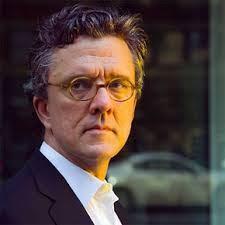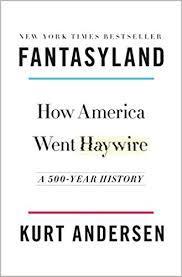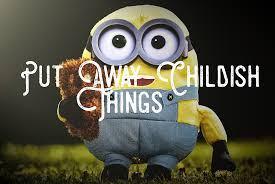(A condensed version of my June 18 book review talk)

Religious zealotry has repeatedly afflicted America. But in the early Twentieth Century that, Andersen says, seemed to be fizzling out. Christian fundamentalism was seen as something of a joke, culminating with the 1925 Scopes “monkey” trial. But evangelicals have made a roaring comeback. In fact, American Christians today are more likely than ever to be fundamentalist, and fundamentalism has become more extreme. Fewer Christians now accept evolution, and more insist on biblical literalism.

First he casts religion itself as a gateway drug. Such a suspension of critical faculties warps one’s entire relationship with reality. So it’s no coincidence that the strongly religious are often the same people who indulge in a host of other magical beliefs. The correlation is not perfect. Some religious Americans have sensible views about evolution, climate change, even Trump — and some atheists are wacky about vaccination and GM foods. Nevertheless, there’s a basic synergy between religious and other delusions.

Andersen meantime also says popular culture blurs the line between reality and fantasy, with pervasive entertainment habituating us to a suspension of disbelief. I actually think this point is somewhat overdone. People understand the concept of fiction. The problem is with the concept of reality.

Another big factor, Andersen thinks, was the “anything goes” 1960s counterculture, partly a revolt against the confines of rationality. Then there’s post-modernist relativism, considering truth itself an invalid concept. Some even insist that hewing to verifiable facts, the laws of physics, biological science, and rationality in general, is for chumps. Is in fact an impoverished way of thinking, keeping us from seeing some sort of deeper truth. As if these crackpots are the ones who see it.
Then along came the internet. “Before,” writes Andersen, “cockamamie ideas and outright falsehoods could not spread nearly as fast or widely, so it was much easier for reason and reasonableness to prevail.” Now people slurp up wacky stuff from websites, talk radio, and Facebook’s so-called “News Feed” — really a garbage feed.

Guns are a particular focus of fantasy belief. Like the “good guy with a gun.” Who’s actually less a threat to the bad guy than to himself, the police, and innocent bystanders. Guns kept to protect people’s families mostly wind up shooting family members. Then there’s the fantasy of guns to resist government tyranny. As if they’d defeat the U.S. military.

A particularly disturbing chapter concerns the 1980s Satanic panic. It began with so-called “recovered memory syndrome.” Therapists pushing patients to dredge up supposedly repressed memories of childhood sexual abuse. (Should have been called false memory syndrome.) Meantime child abductions became a vastly overblown fear.

A book by Tom Nichols, The Death of Expertise, showed how increasing formal education doesn’t actually translate into more knowledge (let alone wisdom or critical thinking). Education often leads people to overrate their knowledge, freeing them to reject conventional understandings, like evolution and medical science. Thus the anti-vaccine insanity.
Another book, Susan Jacoby’s The Age of American Unreason, focuses on our culture’s anti-intellectual strain. Too much education, some people think, makes you an egghead. And undermines religious faith. Yet Jacoby also notes how 19th Century Americans would travel long distances to hear lecturers like Robert Ingersoll, the great atheist, and Huxley the evolutionist. Jacoby also vaunts 20th century “Middlebrow” American culture, with “an affinity for books; the desire to understand science; a strong dose of rationalism; above all, a regard for facts.”
Today in contrast there’s an epidemic of confirmation bias: people embracing stuff that supports pre-existing beliefs, and shutting out contrary information. Smarter folks are actually better at confabulating rationalizations for that. And how does one make sense of the world and of new information? Ideally by integrating it with, and testing it against, your body of prior knowledge and understanding. But many Americans come short there — blank slates upon which rubbish sticks equally well as truth.

Anderson’s subtitle is How America Went Haywire. As if that applies to America as a whole. But we are an increasingly divided nation. Riven between those whose faith has become more extreme and those moving in the opposite direction; which also drives political polarization. So it’s not all Americans we’re talking about.
Still, the haywire folks are big shapers of our culture. And there are real costs. Anti-vaccine hysteria undermines public health. The 1980s child threat panic ruined lives.

Yet is it the end of the world? Most Americans go about their daily lives, do their jobs, in a largely rational pragmatic way (utilizing all the technology the Enlightenment has given). Obeying laws, being good neighbors, good members of society. Kind, generous, sincere, ethical people. America is still, in the grand sweep of human history, an oasis of order and reasonableness.
Meantime religious faith is collapsing throughout the advanced world, and even in America religion, for all its seeming ascendancy, is becoming more hysterical because it is losing. The younger you are, the less religious you are likely to be. And there are signs that evangelical Christianity is being hurt by its politicization, especially its support for a major moral monster.

